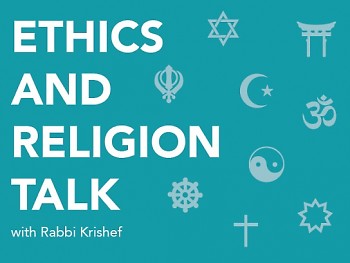Rev. Ray Lanning, a retired minister of the Reformed Presbyterian Church of North America, responds:
“In my experience Christians do have a blind spot in this area. Many ‘middle class’ Christians don’t seem to realize that there is as much poverty and need in certain parts of the USA as there is in any ‘third world’ country, even in parts of the ‘holy city’ of Grand Rapids. The answer is not to withhold aid to other countries, or divert our giving from causes abroad to causes at home. Rather, we should gird up our loins and see what there is to be done closer to home as well. ‘Blessed is he that considereth the poor’ (Psalm 41:1).
“Presbyterian and Reformed churches are blessed with an agency to lead the way. We call it the ‘diaconate,’ the body of those elected and ordained to serve as ‘deacons’ in our congregations, after the example of the early church (Acts 6). ‘The office peculiar to the deacons is diligently to collect alms and other contributions of charity, and after mutual counsel, to distribute the same faithfully and diligently to the poor, both to residents and to strangers, as their needs may require’ (Church Order of Dort, Art. 25). Much good work is already being done by area diaconates, but their work could be better supported, its reach extended further than at present, and many more church members could be enlisted to assist them in their work.”
Father Kevin Niehoff, O.P., a Dominican priest who serves as Adjutant Judicial Vicar, Diocese of Grand Rapids, responds:
“I cannot answer this for others but I will answer for myself… no, I do not forget those struggling around me, or ‘others’ in foreign lands. I will also answer for the Catholic Church. No, the Catholic Church does not forget those struggling around us (regardless of their religion), or ‘others’ in foreign lands.
“To this end, the Diocese of Grand Rapids has a ministry called Catholic Charities of West Michigan, cf. https://www.ccwestmi.org, and the Diocese of Grand Rapids actively participates in Catholic Relief Services, cf. https://www.crs.org. The former assists those struggling around us and the latter assists ‘others’ in foreign lands. Check the websites to see how the Catholic Church assists our fellow human beings, locally and abroad.”
The Reverend Colleen Squires, minister at All Souls Community Church of West Michigan, a Unitarian Universalist Congregation, responds:
“In our UU faith we have 7 Principles and some of us use them to help frame our moral compass. For this question I rely on our 7th Principle – Respect for the interdependent web of all existence of which we are a part. When I read this Principle I gain two important insights. The first is I see our connection to the honey bees and to the great white rhinos as well as to the people of Flint and the Syrian refugees. This tells me that it is never a compassionate response to pit one person’s struggle against another person’s struggle. This leaves those who are struggling to plead their case of worthiness. The question should not be how do we pick and choose who to help but rather why are those in power and those with abundant resources allowing struggling to continue.
“The second insight is that because of my connection to all things it is my responsibility (within my own resources) to assist all those who are struggling regardless of their location or distance from me. That ultimately my neighbor next door is equally connected to me as my neighbor across the globe. Our 7th UU Principle eliminates the "othering" of people, we are one humanity, we are connected.”
The Rev. Sandra Nikkel, head pastor of Conklin Reformed Church, responds:
“There is a responsibility that comes with the resources that God gives us. In His Word He gives us many guidelines about giving and He encourages us to seek his wisdom in all that we do. Galatians 6:10 tells us that ‘as we have opportunity, let us do good to all people, especially to those who belong to the family of believers.’ The point here is that we start with those closest to us—our community. And from there we extend to help those in need outside of our community.”
R. Scot Miller, who writes from an Anabaptist and Quaker Christian perspective, responds:
“This is a great query for Quaker or Brethren Meeting. I urge all congregations to silently consider it, and then discuss it as a matter of congregational integrity.”
This column answers questions of Ethics and Religion by submitting them to a multi-faith panel of spiritual leaders in the Grand Rapids area. We’d love to hear about the ordinary ethical questions that come up on the course of your day as well as any questions of religion that you’ve wondered about. Tell us how you resolved an ethical dilemma and see how members of the Ethics and Religion Talk panel would have handled the same situation. Please send your questions to [email protected].
The Rapidian, a program of the 501(c)3 nonprofit Community Media Center, relies on the community’s support to help cover the cost of training reporters and publishing content.
We need your help.
If each of our readers and content creators who values this community platform help support its creation and maintenance, The Rapidian can continue to educate and facilitate a conversation around issues for years to come.
Please support The Rapidian and make a contribution today.
